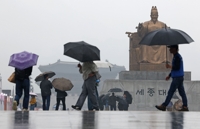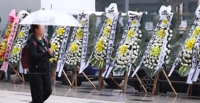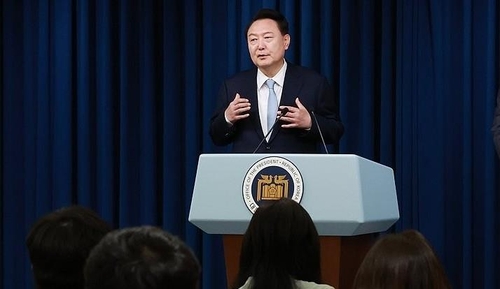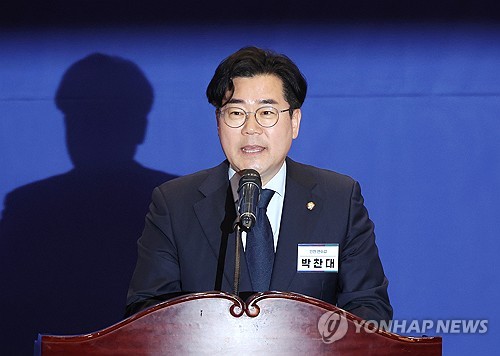(EDITORIAL from Korea Times on Dec. 24)
Ssangyong in trouble again
Automaker should make self-rescue efforts
Debt-ridden Ssangyong Motor has filed for court receivership as it struggles with snowballing debts amid the surging coronavirus pandemic. The filing came after the South Korean unit of India's Mahindra & Mahindra failed to repay loans worth 60 billion won ($54.8 million) last week. Ssangyong also failed to pay 90 billion won due Monday to its main creditor, the Korea Development Bank (KDB).
This development shows that it is dangerous to push for corporate restructuring under the influence of the political sector. In 2009, China-based SAIC Motor acquired a 51 percent stake in the troubled Ssangyong Motor but gave up its managerial rights in the company due to falling sales amid an economic slowdown. This led to mass layoffs, inflicting severe hardship on employees and their families as well as subcontracting companies.
Now we worry about the difficulties looming for the carmaker and its subcontractors, and the employees and their family members who stand to be affected, numbering up to 640,000 in total. The court receivership filing demonstrates all the relevant parties ― the company, union, government and the political sector ― have failed to improve the situation over the past 11 years.
Since the Indian carmaker acquired the company in 2009, it has continued to log net losses over the past 15 consecutive quarters through this year's third quarter. The firm's failure was mainly attributed to its lack of efforts to present new models and inability to compete with other local carmakers.
Ssangyong's market share ranks fifth here behind Renault Samsung and GM Korea. Despite the lingering managerial difficulties, the company pushed to rehire workers in May who were dismissed in 2009, as a result of an agreement among the political sector, union and the government.
What is worrisome is the possible resurgence of such a political approach toward a settlement of the issue. The government and the state-run KDB, devoid of shares in the company, are not supposed to provide financial support for the firm. Any possible assistance for the "insolvent" firm will trigger a fairness issue from sound companies that faithfully carried out business activities against all the odds.
Yet, we welcome a Seoul court's decision to accept Ssangyong's request to suspend the receivership program for three months. The company can normalize its operation should it manage to retain credit from lenders and find a new owner during the period. Such a scenario will be possible only when the company and employees make enormous self-rescue efforts. Toward that end, the political sector should refrain from engaging in the dispute.
As a SUV-focused carmaker, Ssangyong's sales dropped 19 percent year-on-year to 96,763 vehicles during the January-November period this year. The firm should have turned to more lucrative future cars like electric and hydrogen vehicles.
The Indian carmaker has come under growing criticism for breaking its pledge to invest 230 billion won in Ssangyong and putting pressure on the Korean government for more financial assistance. Taxpayers' money should not be funneled again to the irresponsible insolvent firm and its greedy foreign investor.
(END)
-
 BTS' Jungkook's 'Seven' chosen as hottest hit outside U.S.
BTS' Jungkook's 'Seven' chosen as hottest hit outside U.S. -
 From pastime to academic discipline: Exhibition spotlights evolution of Korean embroidery
From pastime to academic discipline: Exhibition spotlights evolution of Korean embroidery -
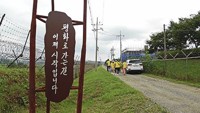 Gov't to open 10 trails near DMZ for visitors next month
Gov't to open 10 trails near DMZ for visitors next month -
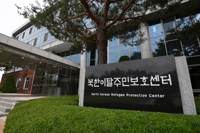 Number of N. Korean defectors entering S. Korea reaches 43 in Q1
Number of N. Korean defectors entering S. Korea reaches 43 in Q1 -
 N. Korea dismantles S. Korean building near shuttered Kaesong complex
N. Korea dismantles S. Korean building near shuttered Kaesong complex
-
 From pastime to academic discipline: Exhibition spotlights evolution of Korean embroidery
From pastime to academic discipline: Exhibition spotlights evolution of Korean embroidery -
 BTS' Jungkook's 'Seven' chosen as hottest hit outside U.S.
BTS' Jungkook's 'Seven' chosen as hottest hit outside U.S. -
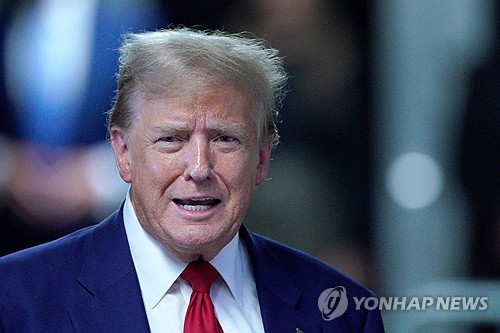 Trump suggests U.S. could withdraw its troops if S. Korea does not contribute more to support USFK: TIME
Trump suggests U.S. could withdraw its troops if S. Korea does not contribute more to support USFK: TIME -
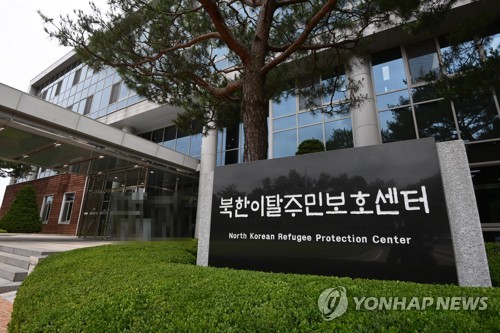 Number of N. Korean defectors entering S. Korea reaches 43 in Q1
Number of N. Korean defectors entering S. Korea reaches 43 in Q1 -
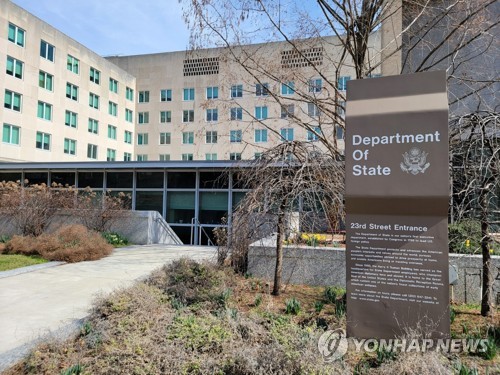 (Yonhap Interview) U.S. will do 'all' it can to back S. Korea in case of China's economic coercion: official
(Yonhap Interview) U.S. will do 'all' it can to back S. Korea in case of China's economic coercion: official
-
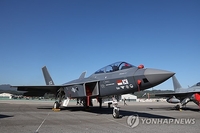 Indonesia proposes cutting payment for joint fighter jet project with S. Korea to one-third
Indonesia proposes cutting payment for joint fighter jet project with S. Korea to one-third -
 S. Korea's working-age population to dip nearly 10 mln by 2044 amid low births
S. Korea's working-age population to dip nearly 10 mln by 2044 amid low births -
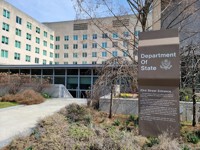 (Yonhap Interview) U.S. will do 'all' it can to back S. Korea in case of China's economic coercion: official
(Yonhap Interview) U.S. will do 'all' it can to back S. Korea in case of China's economic coercion: official -
 N.K. leader calls on public security officials to 'firmly defend' state unity
N.K. leader calls on public security officials to 'firmly defend' state unity -
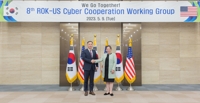 S. Korea to participate in U.S.-led cyber exercise this week
S. Korea to participate in U.S.-led cyber exercise this week


















